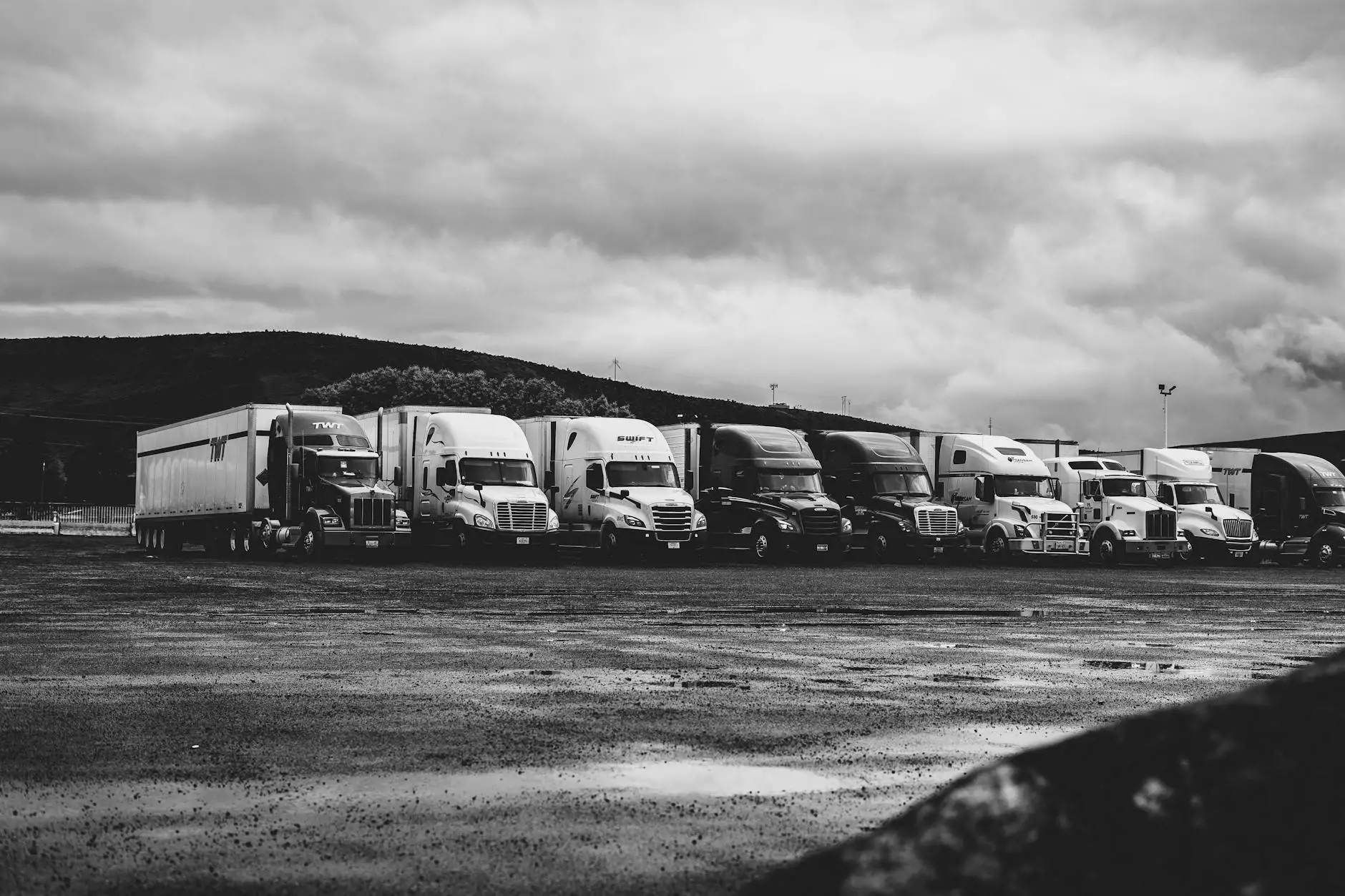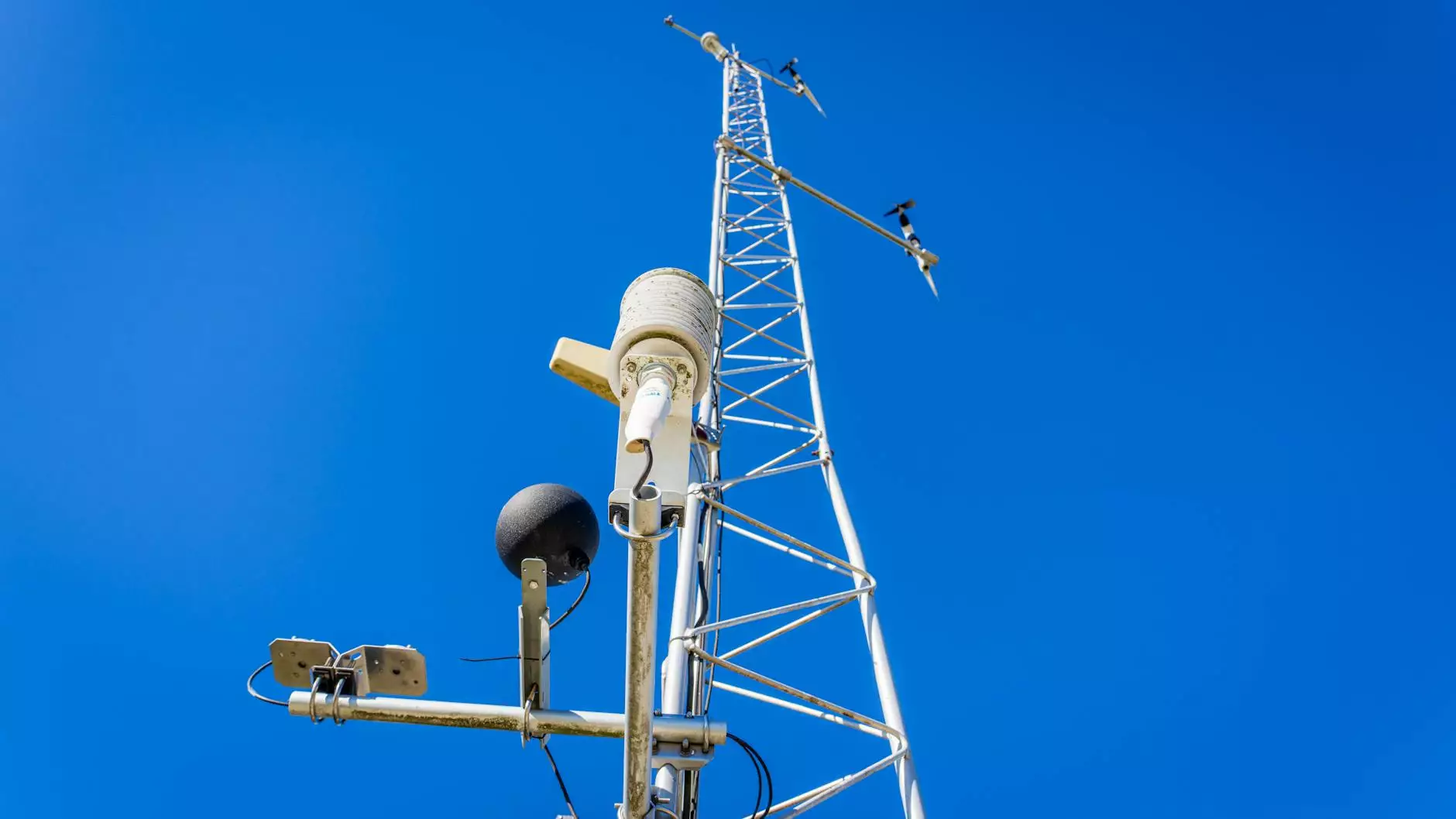Understanding Heavy Equipment Transport: Your Ultimate Guide

The Importance of Heavy Equipment Transport
In today's fast-paced business world, efficient transportation of heavy equipment is crucial for the success of many industries. This is particularly significant for sectors such as construction, mining, and agriculture. The ability to transport large machinery and equipment safely can greatly affect project timelines and profitability.
What is Heavy Equipment Transport?
Heavy equipment transport refers to the movement of large machinery and vehicles, usually over long distances. This includes excavators, bulldozers, cranes, and other construction equipment. The transportation of such heavy items requires specialized knowledge and equipment to ensure that they arrive at their destination safely and on time.
Benefits of Using Professional Heavy Equipment Transport Services
When it comes to transporting heavy equipment, using a professional service brings numerous benefits:
- Expertise: Professional transport companies have the necessary experience and knowledge to handle heavy equipment.
- Safety: These services employ licensed drivers and adhere to strict safety regulations, ensuring safe transportation.
- Time Efficiency: Hiring professionals saves time, allowing your business to focus on its core functions instead of logistics.
- Insurance and Liability: Reputable transport services provide insurance coverage for your equipment during transit.
Factors Affecting Heavy Equipment Transport Quotes
When seeking a heavy equipment transport quote, various factors come into play. Understanding these can help you plan and budget accordingly:
1. Distance
The distance between the pickup and delivery locations directly impacts the overall cost. Longer distances typically result in higher transport fees.
2. Type of Equipment
Different types of equipment have varying sizes, weights, and fragility levels. Heavier and oversized equipment generally incurs higher transport costs due to the need for specialized trailers.
3. Transport Method
Different transportation methods (flatbed, lowboy trailers, etc.) can affect the quote. The chosen method must align with the equipment’s specifications.
4. Location
Urban areas might have different transport regulations and permit requirements compared to rural locations, impacting costs.
5. Urgency
Expedited services or last-minute transport requests often come with an increased fee.
Getting a Heavy Equipment Transport Quote
Obtaining a heavy equipment transport quote is a straightforward process, but it is essential to provide accurate information to receive an accurate estimate:
- Contact Transport Providers: Reach out to various transportation companies, including elevationtransportservices.com, to compare quotes.
- Provide Details: Be prepared to give details such as equipment type, weight, dimensions, pickup and drop-off locations, and desired timelines.
- Ask About Additional Fees: Clarify any potential extra fees that could be incurred, such as fuel surcharges or special permits.
- Review Terms of Service: Understand the terms, conditions, and insurance options provided by the transport company.
Transportation Services Offered by Elevation Transport Services
Elevation Transport Services specializes in transporting heavy equipment, but we also offer a range of related services to meet your needs:
1. Transportation
Our primary service is the safe transportation of heavy machinery. We utilize state-of-the-art equipment and experienced drivers to ensure that your machinery arrives intact.
2. Town Car Service
In addition to heavy equipment transport, we provide reliable town car services for executives and clients, ensuring dignified and comfortable transport.
3. Vehicle Shipping
We cover all vehicle shipping needs, whether it’s individual cars or fleets, across local and long-distance routes.
How to Prepare for Heavy Equipment Pickup
Preparing your equipment for transport ensures a smooth process. Here are essential steps to follow:
- Clean the Equipment: Remove dirt and debris to prevent damage during transport.
- Secure All Parts: Ensure all movable parts are secured, especially those that could be dislodged during transit.
- Check Fluid Levels: Ensure that fluid levels (oil, fuel, etc.) are within recommended limits.
- Document Condition: Take photographs of the equipment before transport for your records.
- Provide Necessary Documentation: Have all relevant paperwork ready, including registrations and permits.
Understanding Transport Regulations
Heavy equipment transport is subject to various local, state, and federal regulations. Understanding these can help avoid fines or delays:
1. Oversized Vehicle Permits
Many states require permits for oversized loads. Ensure your transport provider handles these regulations to prevent stoppages.
2. Safety Regulations
Adherence to safety regulations is mandatory to safeguard both the load and public roadways. Transport companies must comply with these standards.
3. Weight Restrictions
Be aware of weight limits on roads and bridges, as exceeding these can lead to substantial fines.
Choosing the Right Transport Company
Not all transport companies are created equal. Here’s how to select the best service for your heavy equipment transport needs:
- Reputation: Research reviews and testimonials to gauge customer satisfaction.
- Experience: Choose a company with extensive experience in heavy equipment handling.
- Insurance: Ensure the transport company offers adequate insurance coverage for your equipment.
- Rates: Compare quotes but remember that the cheapest option isn’t always the best.
- Communication: Opt for a company that is transparent and maintains good communication throughout the transport process.
Understanding the Costs of Heavy Equipment Transport
When you receive your heavy equipment transport quote, it will include several elements determining the total cost:
1. Base Rate
This is the general fee for transporting your equipment based on the distance and type of machinery.
2. Fuel Surcharge
Due to fluctuating fuel prices, transport companies often include a fuel surcharge in their quotes.
3. Additional Services
Services like packing, loading, and unloading might incur additional fees. Always clarify these points in your quote.
4. Permit Fees
If your load requires special permits, these will be additional costs that should be outlined in your quote.
Conclusion: Invest in Quality Transport for Your Heavy Equipment
In conclusion, investing in professional heavy equipment transport is vital for the smooth operation of your business. By obtaining detailed heavy equipment transport quotes and understanding the transportation process, you can ensure that your machinery reaches its destination safely and efficiently. For more information and competitive pricing, contact Elevation Transport Services today and make your transport needs seamless and efficient.
© 2023 Elevation Transport Services. All Rights Reserved.









